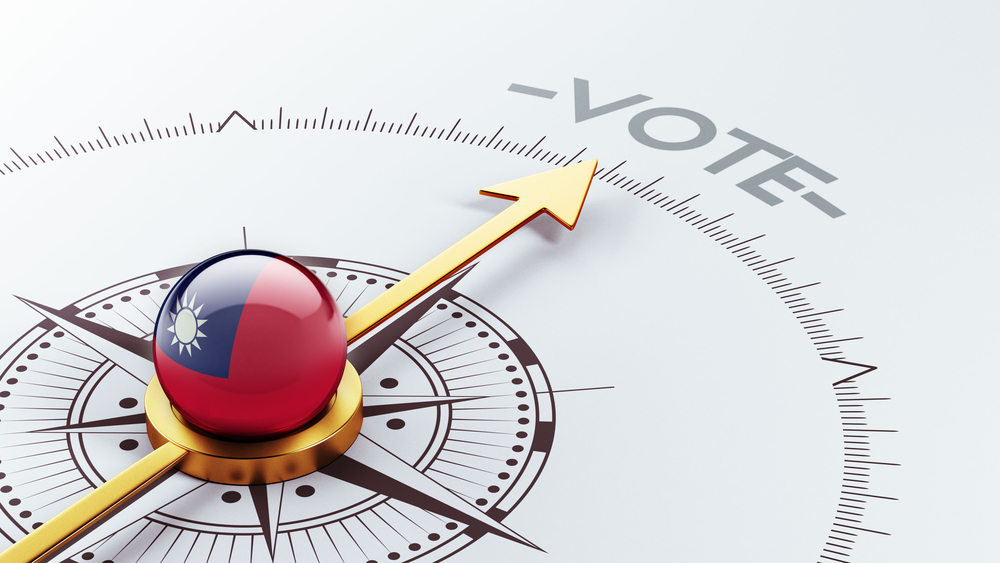Safe Bet: The Next Taiwanese President will be a Woman

Please note that we are not authorised to provide any investment advice. The content on this page is for information purposes only.
With legislator and Deputy Speaker Hung Hsiu-chu confirmed by the Standing Committee of the Nationalist Party or Kuomintang (KMT), the presidential candidates for the two main parties contending for Taiwan’s 2016 election are both women, leading to the foregone conclusion that there will be a female president in Taiwan next year.
With legislator and Deputy Speaker Hung Hsiu-chu confirmed by the Standing Committee of the Nationalist Party or Kuomintang (KMT), the presidential candidates for the two main parties contending for Taiwan’s 2016 election are both women, leading to the foregone conclusion that there will be a female president in Taiwan next year.
The Democratic Progressive Party (DPP) candidate, Tsai Ing-wen, ran for office in 2012 but lost to the KMT’s incumbent President Ma Ying-jeou. This time around, with the popularity of the KMT administration at a nadir and the DPP fresh from a landslide victory in the 2014 local elections, Tsai is the favourite to become the first female president of the Republic of China.
The KMT, by contrast, had difficulty coming up with a viable candidate. Hung threw herself into the KMT primary in an attempt to prompt heavyweight male candidates to throw their hats into the ring. KMT Chairman Eric Chu declined, citing his commitment to the constituents who had just re-elected him as Mayor of New Taipei City. The speaker of the Legislative Yuan (Taiwan’s parliament), Wang Jin-ping, was waiting to be recruited were Hung to fail to cross the threshold of 30 per cent support in the primary poll. Vice President Wu Dun-yih, the heir apparent who has been closely associated with President Ma’s lacklustre performance, did not even bother to test the waters.
While others have faltered or stumbled in their calculation, Hung’s straight talking and combative style appear to have rejuvenated the much-maligned KMT and its supporters, as she won the primary with 46 per cent of the poll. She far exceeded the minimum quota and, by default, becomes the KMT’s standard-bearer in the upcoming presidential election.
Taiwan will not be the first Asian democracy to have a female president. The Philippines, Indonesia, and South Korea have all elected women as head of state. In addition, India, Pakistan, Bangladesh, and Thailand have experienced rule by female prime ministers in their respective parliamentary system.
Almost without exception, these female politicians have hailed from prominent political dynasties — the widow, the daughter or even the sister of famous male politicians.
Taiwan, too, used to have many female parliamentarians who came to power after their politician husband had been indicted for dissenting views or seditious activities. But they rarely advanced beyond the positions held by their husband. In the past, the KMT government prescribed gender quotas in both local assemblies and the national parliament. Now female candidates are as competitive as their male counterparts are and no longer need the protection of a quota to ensure their representation. Former vice president Annette Lu, the highest-ranking politician in Taiwan’s history so far, rose to power mostly on her own merits without the name recognition of a political family.
One of the most intriguing developments in the upcoming election, other than gender, is that the usual profile of candidates from the each major party seems to have been reversed. Tsai comes from a well-to-do business family and she has enjoyed a relatively comfortable material lifestyle. Hung, though born in Taiwan, is the daughter of mainland Chinese parents. Her father was a victim of political persecution. During his three years in prison, Hung’s mother worked in a factory to eke out a living. Such a humble background, coloured by political victimisation, is usually reserved for DPP politicians.
Tsai’s academic credentials appear more like those of a KMT technocrat or scholar-turned-politician, similar to those of President Ma. Tsai graduated from the law department of the top National Taiwan University and went on to obtain a master’s degree from Cornell University Law School and a PhD from the London School of Economics. Hung went to the same high school as Tsai and studied law as well, but at the less prominent Chinese Culture University.
Tsai was recruited into the government as former president Lee Teng-hui’s national security advisor in the late 1990s, serving as deputy premier in the DPP’s Chen Shui-ban administration (2000–08). Hung, hailing from New Taipei City, is one of the most senior legislators in the parliament and is considered the leading authority on education issues. Her elevation to deputy speaker in 2012 appeared to be the apex of her career before her surprising candidacy this year. Again, Tsai’s English fluency and internationalist stance is typical of KMT candidates, while Hung’s grassroots leanings and local legislative focus can be seen in many DPP politicians.
Tsai exudes an intellectual arrogance and policy dogmatism that has earned her the moniker ‘Professor Tsai’. Hung, on the other hand, has been noted for her sharp tongue and tough stand on issues — hence her nickname, ‘little spicy pepper’. She possesses a confrontational approach that is usually associated with DPP lawmakers.
With the KMT’s devastating defeat in the 2014 local elections and the low approval rating of President Ma, the DPP appear well placed to gain power with Tsai expected by many to become the next president of Taiwan. However, the candidacy of Hung seems to have resurrected the KMT from their defeatism. Even with some encouraging poll numbers, Hung faces an uphill battle ahead. Yet more importantly, Taiwan will have Asia’s first all-women contest for head of state. This is a fascinating reversal of Taiwan’s usual political patterns, which — no doubt — is good for democracy.
Taiwan gears up for all-female presidential race is republished with permission from East Asia Forum




